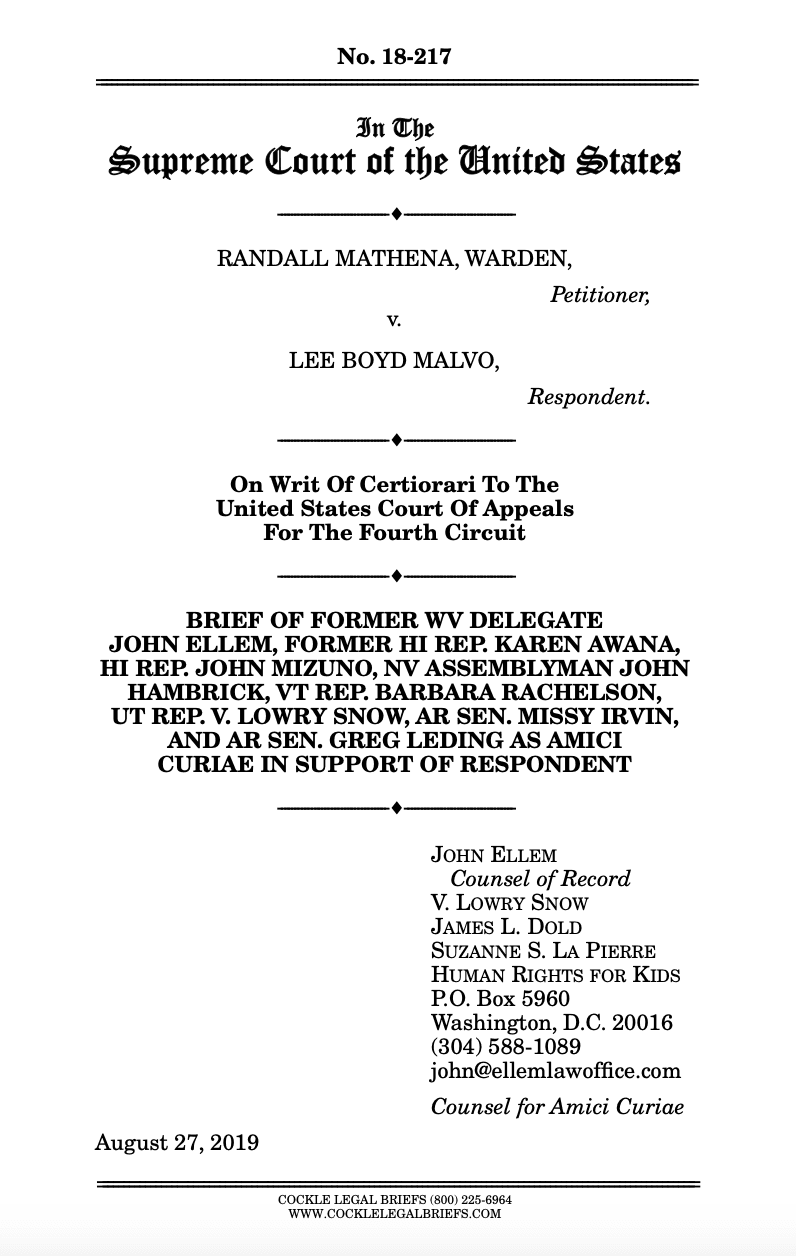
Summary of Argument
The Fourth Circuit’s decision correctly concludes that “Miller’s holding potentially applies to any case where a juvenile homicide offender was sentenced to life imprisonment without the possibility of parole.” As Montgomery made clear, “under Miller, the Eighth Amendment bars life-without-parole sentences for all but those rare juvenile offenders whose crimes reflect permanent incorrigibility.” Montgomery further held that the Miller holding established a substantive rule of law and thus must be applied retroactively.
As the actions of Amici show, these legislators not only support this Court’s decisions but have used them to inform their states’ legislative deliberations in crafting more age-appropriate sentencing standards for children convicted of the most serious crimes. Whether it was in floor speeches, presentations in committee or legislative findings, legislators from states with both mandatory and discretionary life without parole sentencing schemes viewed Miller and Montgomery, and the reasoning underlying these decisions, as impacting how their states sentenced children and passed legislation accordingly.
Prior to 2012, eight states either already banned life without parole sentences for children or had no children serving such sentences. Since then, both legislatures and courts in an additional thirty-six states and the District of Columbia have relied on Miller and Montgomery to pass laws or issue court rulings providing children sentenced to life without parole with a re-sentencing hearing, establish new sentencing procedures, and/or eliminate life without parole sentences for children, respectively. The vast majority of jurisdictions in the United States, either through their legislatures or their courts, view Miller and Montgomery as applying to states with both mandatory and discretionary sentencing schemes. Only six of the fifty states have neither passed legislation nor begun the re-sentencing process for children currently serving such sentences.
Given that the overwhelming majority of both state legislatures and courts understand the Miller and Montgomery holdings as applying to both mandatory and discretionary sentencing schemes, and have taken substantive action implementing this precedent, the Court should affirm the decision below.